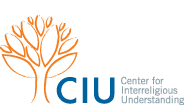Jews In Europe: Guests or Co-Hosts?
In September 2005, Rabbi Bemporad participated in “The Europe of Dialogue,” the sixth Gniezno Convention held in Poland. The Convention brought together leaders of the laity of the Catholic Church, other Christian denominations, and other world religious to discuss the future of interfaith dialogue.
Rabbi Bemporad’s speech, “Jews in Europe: Guests or Co-Hosts?” addressed thehistory of Jewish-Christian dialogue and is excerpted below.
If one looks at Jewish European History, it is difficult to find a time when one could describe the Jews as hosts. Hosts, by definition, invite their guests in a sense of friendship and view the guests to be of equal status. In this sense, I do not think the Jews were ever hosts.
Jews had little influence with the ruling powers in Europe compared to the Christians, but despite this-and even despite anti-Semitism-European Jews were often very welcome guests in many countries in Europe and were given a degree and variety of rights. Jews did their best to contribute to the social, economic, and intellectual life of the countries in which they lived, often making significant contributions. For instance, Pope John Paul II spoke highly of the contribution of the Jews in Poland. He said that in Warsaw the Jewish population contributed to the intellectual life of Poland in an unparalleled way.
Yet the rise of Hitler and the Second World War was a disastrous reality for Europeans. I personally had a sense of this when as a teenager I returned to Italy with my family immediately after the war to see who was still alive of those who we left behind. We took the very first boat– the Vulcania– that sailed to Italy from the U.S. I cannot convey to you the shock that I felt when docking at Palermo. The devastation was overwhelming. Not one house was left standing.
Here in Poland the suffering was horrendous, the devastation enormous. I feel a great kinship with the profound suffering of the Polish people, which has unfortunately not been given proper recognition. Of course Hitler had every intention of making slaves and killing the Balkan population after he exterminated the Jews. But the Jews suffered in the unique sense by being singled out for extermination.
The Holocaust was a devastating experience for the Jewish people. Almost 40 percent of the Jews were killed-more Jews than live in the United States, more than all of those who live in Israel. And it was not a matter of sheer numbers; the greatest and most important centers of Jewish learning also perished. Imagine if- of the billion Catholics worldwide- 400 million were killed in a period of a few years, the Vatican demolished and great universities destroyed. Think what this would mean to you.
Furthermore, the rights that the Jews had gained in Europe were not always sufficient in protecting them against the waves of anti-Semitism. There was too much subterranean anti-Judaism in European society. Jewish philosopher Hermann Cohen said:
“Neither the Enlightenment nor modern legislation has succeeded in removing from the Jews the burden placed upon them by the prejudice that they represent nothing but a foreign race. This prejudice can and will disappear only when the inherent worth of their religion is fully recognized.”
Indeed, whatever civil rights the Jewish people have achieved, they have always been held hostage to their lack of religious rights. Nostra Aetate was the beginning of granting religious rights to Jews, and the process will be complete when an official church document affirms the living reality and worth of Judaism as a religion. Such a document would present an official view of Judaism that is not open to the shifts of acceptance and rejection that have occurred throughout Jewish history. Then we will be co-hosts and not precarious guests.
Indeed the beginnings of progress were made with Vatican II and Nostra Aetate, when the church-in order to be true to itself-began reviewing its history to determine its relation to other world religions. The declarations did not require any response on the Jewish side. In fact, the documents had to be autonomous if they were to be legitimate.
Yet it is a source of regret for me that, in all the years of Catholic outreach to the Jewish community, the authoritative body of the Jewish community has not seen fit to issue its own statement on the place of Christianity within a Jewish self-understanding. The Catholic Church has opened the way for spiritual renewal, and we must be honest as the Church has been in endeavoring to look into its past, admit its errors and change.
We have our own biography of more than three thousand years. What would be the benefit to anyone for this heroic, tragic and sublime biography, which has nourished so many, to end? Is it not possible that Judaism should continue to be a significant voice in the orchestra of humankind? And certainly, if the documents since Vatican II mean what they say, then isn’t this what the Church wants also?
But beyond becoming “co-hosts,” we must become unified champions of religious values that today are in jeopardy. We are all witnessing a renewed search for spirituality especially among our youth. We are all experiencing a search for security, certainty, and reassurance that one’s life has meaning and significance. It is both a personal search and a search for community.
As Christians and Jews, we must do a better job of making religion a vital and intelligible part of lives. We can only be co-hosts by working together for the values that were established in our sacred scriptures. The ultimate goal is that we overcome the distinction between hosts and guests and we are all simply children of God.
